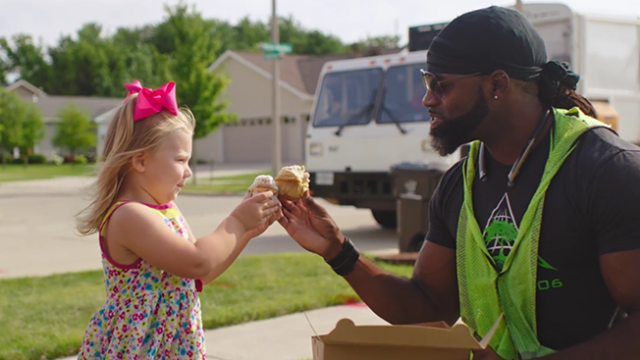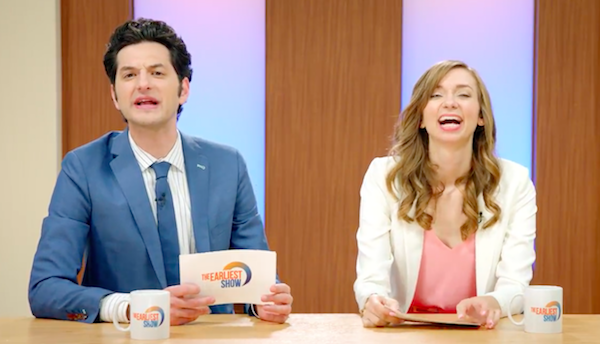While product placement is still very much a thing, a rising trend in the marketing arena is for companies to produce their own branded entertainment. These companies are trading in static ads and traditional commercials and instead telling compelling stories in line with their brand’s message.
Nutella, for one, is timing a weekly web series with the holiday season in Spread the Happy. This feel-good show tells the stories of individuals who make the world a better place by spreading kindness to others. The first episode is about Brooklyn, a three-year-old girl who strikes up a sweet friendship with their garbage man. Aside from a fade-in title at the beginning and an image of Nutella spread at the end, these stories don’t feature the product at all. “You’ll notice that these are not ads—it’s a webseries brought to consumers by Nutella so we’re not trying to brand it,” Eric Berger, marketing director for Nutella USA told Adweek. “We’re just generally trying to spread happiness and inspire others to do the same.”
Cap’n Crunch teamed up with Funny or Die last week to create a comedy series called The Earliest Show. Ironically airing in the middle of the night, the campaign tells the story of a talk show host who goes through a very public break-up. Aimed at millennial males, The Earliest Show stars Ben Schwartz (Parks and Recreation, House of Lies) and Lauren Lapkus (Orange Is the New Black). Aside from purposely wacky infomercials for Cap’n Crunch and a cooking tutorial, parent company Quaker wanted to focus on the story and original concept by Schwartz.
Starbucks began a similar campaign in September with Upstanders, an original series that aims to inspire positive change amidst cynicism in the United States. The series features ten stories told in written, video and podcast formats about “ordinary people doing extraordinary things to create positive change in their communities.”

Going a different direction, Chipotle’s Love Story animated campaign focuses on two entrepreneurs whose judgment is clouded by competition and processed food ingredients. The message is that the company cares more about what goes into their food than how they sell it. Love Story is the third in a string of short films by the restaurant chain that share a theme of quality food products.
Geico took a similar approach with its web series about its sponsored eSports players, Team SoloMid (TSM). TSM’s New Neighbor is shot in mockumentary-style and explores how a professional eSports team living in a house to practice deal with an overly enthusiastic neighbor. Aside from a deliver of Geico “swag” at the beginning of the first episode, that’s the last you’ll hear about insurance. Geico saved plugs for separate, mini ad spots in which different team members would discuss an insurance offering while their neighbor interrupts in the background.
Branded entertainment puts control back into the hands of marketers and if successful, elicits an emotional response from the viewer. A recent study by Television News Daily shows that original branded content outperforms traditional pre-roll ads. These stories also generate an average of 86 percent brand recall among consumers—a much higher number than the 65 percent with pre-roll advertising.

